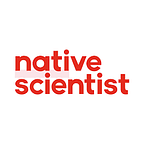Lost in Translation: Science as a Universal Language
Author: Hania Tayara
Did you know that English only became the universal language of science in the 1970s? The majority of Albert Einstein’s original writings are in German and Marie Curie published her findings about radioactivity in French. Ibn Sina’s The Canon of Medicine was written in Arabic, and his foundational textbooks were used in medical schools across the globe. In fact, many of the greatest scientists of all time did not communicate their research in English. However, the scientific community of today’s world paints a very different picture. Most scientific journals are in English, and the number of citations of a publication is negatively impacted if a paper is published in another language. Whilst the dominance of one language in science provides a global means of communication for scientists, it can also result in isolation. The favouring of one language over others restricts the global scientific community to researchers that speak English, and can leave others struggling for recognition despite their scientific achievements.
A lack of diversity and inclusion in science has been acknowledged by policymakers and researchers, and different approaches have been adopted to tackle this. The causes of social inequalities that lead to poor representation of certain cultural and ethnic minority groups in scientific communities are numerous and complex, and there is no single solution to addressing the disparities of this nature. However, as an Arab woman who completed a chemistry degree in the United Kingdom, I am particularly aware of the importance of representation within our schools and universities. During my time as an undergraduate, I did not meet any academic staff members, in my department or others, with the same ethnic or cultural background as myself. I am now a Science and Technology Studies (STS) postgraduate student in London, and this is still the case. STS is an interdisciplinary field that is concerned with the relationship between science, technology and society. I decided to pursue STS because of my passion for science communication, and my interest in the boundary between science and its social context. I am bilingual, and studied science in English and Arabic during my school years in Damascus.
Considering my heritage and academic interests, it should come as no surprise that I was drawn to the work of a non-profit organisation that specifically aims to bridge the inequality gap in access to science for cultural minority and migrant children in Europe. Native Scientist explores one key avenue of discrimination within the European scientific community: language. They aim to improve diversity in science by organising science workshops for children from underrepresented cultural backgrounds in their heritage language. The workshops take place in multiple cities across Europe, and they are carried out by scientists who are themselves migrants or belonging to a cultural minority group. They challenge the idea of a single universal language of science, and that’s why I joined their initiative. Native Scientist gives me the opportunity to speak to children about science in Arabic, and also provides individuals like myself with a platform to connect with other Arab scientists. Such initiatives not only encourage more diverse science engagement, but show children that science is universal, regardless of what language they speak or where they come from. Native Scientist promote inclusion in science by actively demonstrating to children that they are already represented in the scientific community, and that they can overcome barriers to be part of the scientific world.
Diversity in science offers a wider range of perspectives and a more accurate evaluation of the natural world. There is no truly unbiased or indifferent science, and we can choose to embrace this instead of ignoring the social factors that influence scientific environments. As often argued by constructivists in STS, a more diverse and inclusive scientific community provides a greater wealth of experience that will arguably result in better quality scientific knowledge. If a scientist does not speak English fluently or at all, does this mean that they are not capable of producing scientific knowledge worthy of recognition? Does scientific brilliance only exist in the English language?
There is great value in linguistic diversity in the scientific community, and restricting science to the English language not only limits scientists, but it also limits science. Translation is a profession within itself, one that requires skill and expertise. The role of a scientist is not to be a translator, and scientific merit should not depend on a researcher’s ability to portray their findings in a single language. Recognition should be based on the quality of the research and how findings are presented, regardless of what language the research is conducted in. We must create a brighter future for the next generation of scientists, one that embraces and encourages both social and intellectual diversity. Instead of focusing on a universal language for science, we can perhaps think of science as a universal language within itself, one that promotes inclusion and transcends borders by uniting scientists across the globe through the medium of scientific curiosity.
